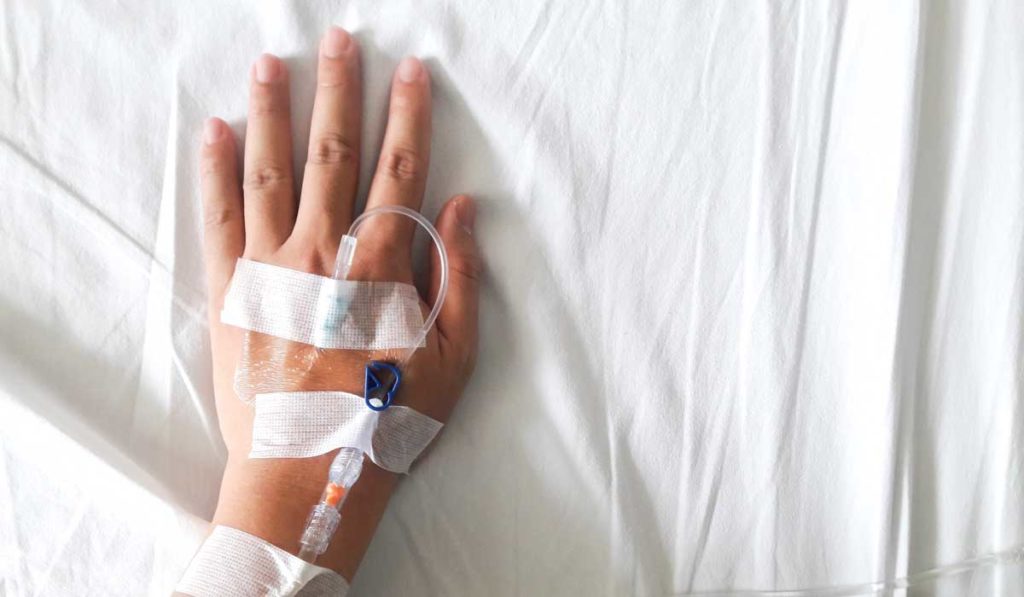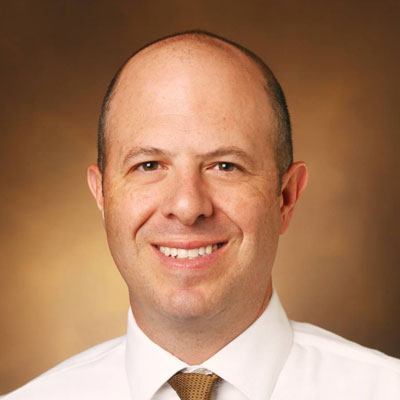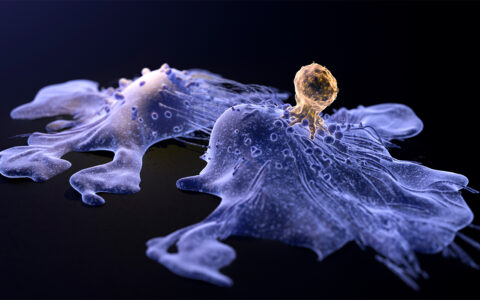After a prior clinical trial (VALOR) for vosaroxin indicated that the investigational drug significantly improved rates of complete remission but not overall survival in patients with relapsed or refractory acute myeloid leukemia (AML) when administered with chemotherapy, researchers at Vanderbilt-Ingram Cancer Center launched a second trial to gauge outcomes in newly diagnosed AML patients. Vosaroxin is a first-in-class anticancer quinolone derivative thought to induce less cardiac toxicity than standard anthracycline therapy.
Phase 2 results from the second trial, VITAL, indicate that vosaroxin with the infusional chemotherapy cytarabine is a clinically active induction regimen that warrants further investigation.
Stephen Strickland, M.D., and Michael Savona, M.D., are principal investigators on the trial. Strickland presented results from the VITAL trial during the American Society of Hematology Annual Meeting and Exposition in Orlando, Florida.
Complete Remission Becomes Reality
A total of 42 patients enrolled in the VITAL clinical trial. The combination therapy included vosaroxin on days 1 and 4, and continuous infusional cytarabine on days 1 through 7. Researchers evaluated participants for adverse events and measured time to complete remission.
Continuous toxicity assessments indicate that the combination of vosaroxin and the chemotherapy cytarabine appears safe. A difference between the VITAL trial and the prior clinical trial (VALOR), is that the newly diagnosed AML patients in the VITAL trial were administered infusional cytarabine with vosaroxin. In the prior trial, patients with relapsed or refractory AML received intermediate doses of cytarabine with vosaroxin.
Nearly half (48 percent) of patients in the new trial reached complete remission (CR). Accounting for three additional patients who achieved complete remission with incomplete count recovery, the remission rate was 55 percent. Progression-free survival was 43 percent, and overall survival was 48 percent for all patients at one-year of follow-up. The most common adverse events were mucocutaneous complications, and there were no attributable cardiac events.
Long-awaited New Therapy
The researchers noted that anthracycline and cytarabine-based induction for AML has remained unchanged for nearly four decades. The new trial results provide long-awaited hope for patients.
“The VITAL trial demonstrates that vosaroxin can be safely combined with cytarabine in the frontline setting,” Strickland said. “Vosaroxin appears capable of providing clinical activity against AML at least similar to that of anthracyclines and may potentially provide a safer alternative given its apparent lack of cardiac toxicity.”
“The VITAL trial demonstrates that vosaroxin can be safely combined with cytarabine in the frontline setting.”
Savona noted vosaroxin has a long and promising track record in trials. “Vosaroxin is a novel chemotherapy with a well-established safety record,” Savona said. “This proof-of-principle phase 2 trial in previously untreated patients shows clear activity, even in poor-risk AML, and adds to the body of evidence supporting the use of vosaroxin in AML.”






